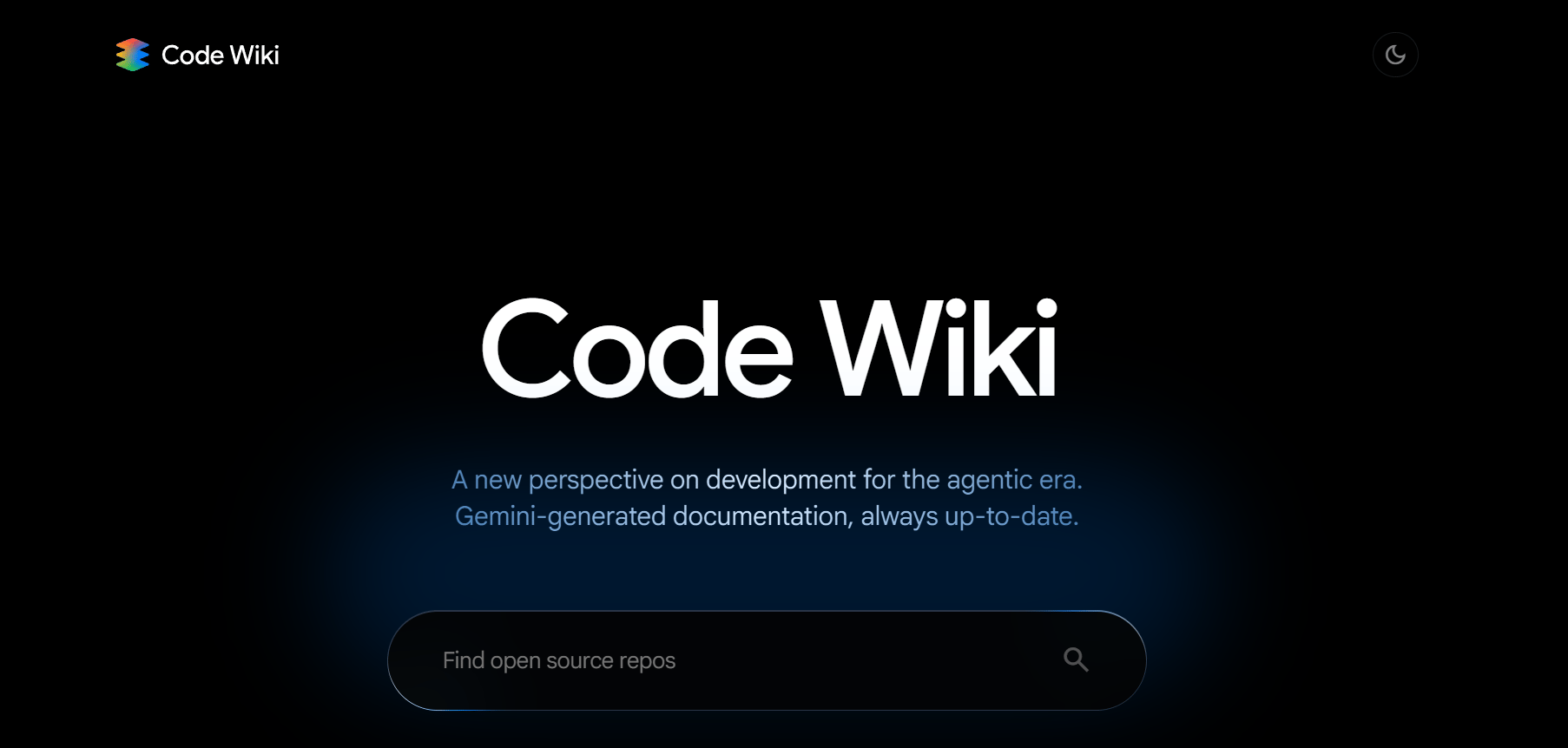Google has launched Code Wiki, an AI-powered platform that generates and maintains live, structured documentation for code repositories, aiming to accelerate code understanding across open-source and enterprise projects. Debuting in public preview on November 14, 2025, Code Wiki allows developers to interactively explore documentation, ask questions through a Gemini-powered chat agent, and instantly visualize up-to-date code relationships with automated diagrams—all accessible at codewiki.google.
Code Wiki matters because it tackles one of the biggest bottlenecks in software development: deciphering complex or legacy code. Instead of relying on static, outdated docs, teams get instant code comprehension—new contributors can onboard quickly, while senior devs navigate unfamiliar libraries in minutes. This technology promises smoother collaboration, faster productivity, and reduced onboarding costs, especially as repositories grow larger and more complex.
Features and Workflow
Live, Structured Wiki: Code Wiki automatically ingests public repositories and updates documentation as code evolves, linking high-level concepts directly to specific files, classes, and functions.
Gemini Chat Agent: Developers receive prompt, context-aware answers to specific codebase queries, leveraging real-time documentation as chat context instead of static docs.
Automated Diagrams: Seamlessly generated architecture, class, and sequence diagrams visualize relationships—always matching the latest code state.
Interactive Navigation: From general explanations to source navigation, users jump deep into the code or back up to architectural overviews, bridging the learning-exploration gap.
Gemini CLI Extension: For private or internal codebases, Google is introducing a Gemini CLI tool for secure, local operation—currently available via waitlist.
Limitations: Code Wiki in public preview only works with public repositories; private repo support and expanded language compatibility are planned.
Industry Context and Quotes
Google cites the inefficiency of manual code reading and stale docs as an industry-wide challenge, with Code Wiki set to eliminate outdated documentation and endless deciphering. Industry commentary highlights the system’s utility—helping contributors make commits on day one, and enabling deep understanding in legacy environments where original authors may no longer be present. As teams invest more in maintaining complex systems, AI-centric tools like Code Wiki promise to shift developer time toward building, not deciphering. “The era of manual, outdated documentation and endless code-reading is over. The future of development is about instant understanding,” Google’s announcement reads.
Pricing, Availability, and Forward-Looking Perspective
Code Wiki is currently free in public preview for public repositories at codewiki.google, with private repo support through the forthcoming Gemini CLI extension—join the official waitlist for early access. Limitations include occasional performance variances in very large codebases, incomplete support for uncommon languages, and pending features for enterprise security. The ongoing expansion of platform features signals Google’s aim to set a new standard for AI-driven code documentation, a trend expected to spread across software development as legacy systems proliferate.
As Google’s Code Wiki evolves, expect broader language support, deeper enterprise integration, and more ways for developers to instantly comprehend and explore any repository, public or private. The rise of generative AI in documentation is poised to redefine developer onboarding and productivity worldwide.

